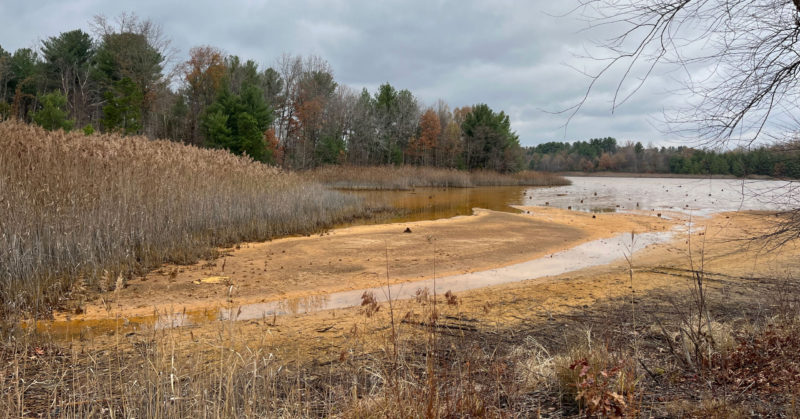By Amanda Pankau
In March, Illinois celebrated news of $40 million in funding to help transitioning energy communities most impacted by recent plant and mine closures.
Energy Transition Community Grants were created by the 2021 passage of the Climate and Equitable Jobs Act (CEJA) to support the economic and social impacts of the transition away from coal. PRN has worked side-by-side with coal communities for decades to ensure the protection of land and water resources. That work continues, along with an effort to support a just and equitable transition for these communities hardest hit by coal’s decline. As part of that effort, we advocated alongside coal community leaders to create this new CEJA grant program, Energy Transition Community Grants, and we are working collaboratively with communities to help ensure their needs are met through the grant process.

Coal’s Decline Pre-Dates CEJA
The coal industry in Illinois has long been a story of boom and bust. For over a century, communities and workers have faced closures with little notice. Mechanization has meant that coal mining jobs have been on a steady, overall decline since 1930. Early unregulated mining before 1977 left communities with polluted land and water that is still being cleaned up today.
These are not stories of some distant past. In 2012, Peabody Energy closed Willow Lake Mine due to safety concerns. The CEO of Vistra Energy even announced, “Coal is on its way out,” shortly after the company took control of Illinois’ downstate coal plant fleet in 2018. Workers, communities, land, and water have long been left behind by the coal industry. Coal’s fate was ultimately sealed by falling prices of natural gas, wind, and solar. Coal is a non-renewable resource that is very expensive to extract from the earth, burn for power, and clean up afterward. The days of this non-renewable resource have been numbered from the start, but the list of communities impacted is long and will require resources and investments.
CEJA Brings Opportunity & Solutions
CEJA is a necessary plan for this disorderly, long-time-coming transition. Thanks to CEJA, coal communities will have advanced notice of closures, access to scholarships for the dependents of laid off workers, job retraining opportunities, and the Energy Transition Community Grant Program to provide annual financial support for six years after closure.
Another new CEJA program will redevelop shuttered coal plants into solar and battery storage projects, generating power, creating jobs, and injecting tax revenue back to the community. CEJA sets out an orderly, planned transition, over more than two decades, to build out clean energy resources and slowly phase out fossil fuel plants.
This is an unprecedented opportunity to grow a new clean energy economy, and Illinois can be a leader in that future. Like CEJA, recent federal laws, namely the Infrastructure Investment and Jobs Act and the Inflation Reduction Act, are targeting investments to coal communities and rural regions, and not just in clean energy.
If put to use, these policies can help coal communities be a part of powering the nation and more! We need to harness every opportunity for each community’s unique future. Creating a new vision and narrative about coal communities’ futures is a place to start, but we cannot stop there. PRN will continue to support coal communities in taking advantage of state and federal opportunities to help bring that new vision to life.







